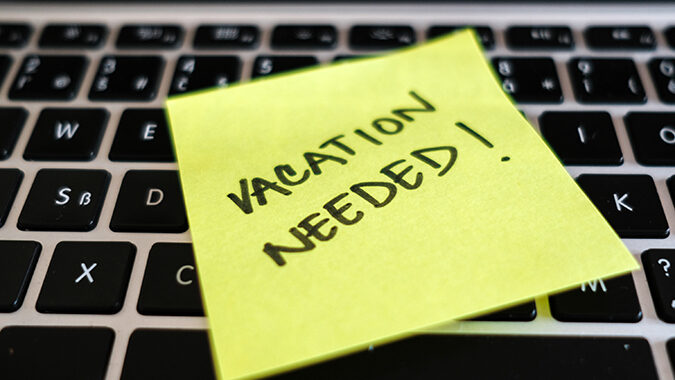As the summer vacation season ends, a large share of workers say they are not taking vacation time, often due to high costs.
Forty-two percent of U.S. workers report that they have not taken a vacation during the last 12 months, according to new research by Eagle Hill Consulting and Ipsos. Nearly half of workers surveyed (47%) said the expense of taking a vacation is the biggest impediment to taking time off.
These findings come as employee burnout remains alarmingly high across the U.S. workforce. About half (49 percent) of American employees say that they are feeling burnout at work.
“Employees really need time to disconnect from work, especially as we continue to see high burnout levels across the U.S. workforce,” Melissa Jezior, president and CEO of Eagle Hill Consulting said Wednesday. “And ideally, employees should fully disengage from work rather than constantly checking email and responding to messages.”
Jezior said employers also benefit when employees take a break from job pressures because rested employees are more engaged when they return from vacation.
“It’s incumbent upon employers to create a culture that encourages employees to both regularly take time off and fully unplug from their job while they’re away,” Jezior explained.
The survey found:
- 42% of workers have not taken time off in the last 12 months. That figure was even higher among younger workers (50%) and lower income employees (56%).
- Workers say the impediments to taking a fully unplugged vacation include the expense of taking a vacation (47%), self-imposed pressure to stay on top of work (31%), a heavy workload (27%), no paid time off (25%), and no colleagues available to cover their workload (25%).
- Many employees are not fully unplugging during their time off. While 54% say they fully disconnect from work during vacation, 28% say they check work email and messages. Six percent say they continue to work during vacation.
The findings are based on a workforce survey from Eagle Hill Consulting conducted by Ipsos from Aug. 11-16. The survey included 1,000 respondents from a random sample of employees across the U.S. and polled them about issues related to burnout and vacation.

